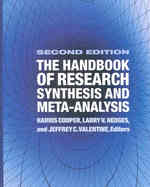Full Description
With a theoretical trajectory beginning in efforts to combine Marxism and Indianism, then developed in reaction to the neoliberal turn of the 1980s and in contact with the mass social movements of recent years, Garcia Linera's Plebeian Power can be read as both an evolving analysis of Bolivian reality through periods of great social change, and as an intellectual biography of the author himself. Informed by such thinkers as Marx, Bourdieu and Ren Zavaleta, Garcia Linera reflects on the nature of the state, class and indigenous identity and their relevance to social struggles.
Contents
Álvaro García Linera: Reflections on Two Centuries of Bolivia, Pablo Stefanoni
I. The Communist Manifesto and our Present
The Communist Manifesto and our Present: Four Theses on Its Historical Actuality
II. Citizenship and Democracy
Citizenship and Democracy in Bolivia (1900-98)
III. Labour-Movement
Historical Cycles in the Formation of the Condition of the Mining Working Class in Bolivia (1825-1999)
The Death of the Twentieth-Century Working-Class Condition
IV. The Indigenous Movement
Colonial Narrative and Communal Narrative
Indigenous Autonomies and the Multinational State
V. Social-Movement Structures
Union, Multitude and Community: Social Movements and Forms of Political Autonomy in Bolivia
VI. The Crisis of the State and the Period of Revolution
The Crisis of the State and Indigenous-Plebeian Uprisings in Bolivia
The Struggle for Power in Bolivia
Indianism and Marxism: the Disparity between Two Revolutionary Rationales
Bibliography of Álvaro García Linera
References
Index








